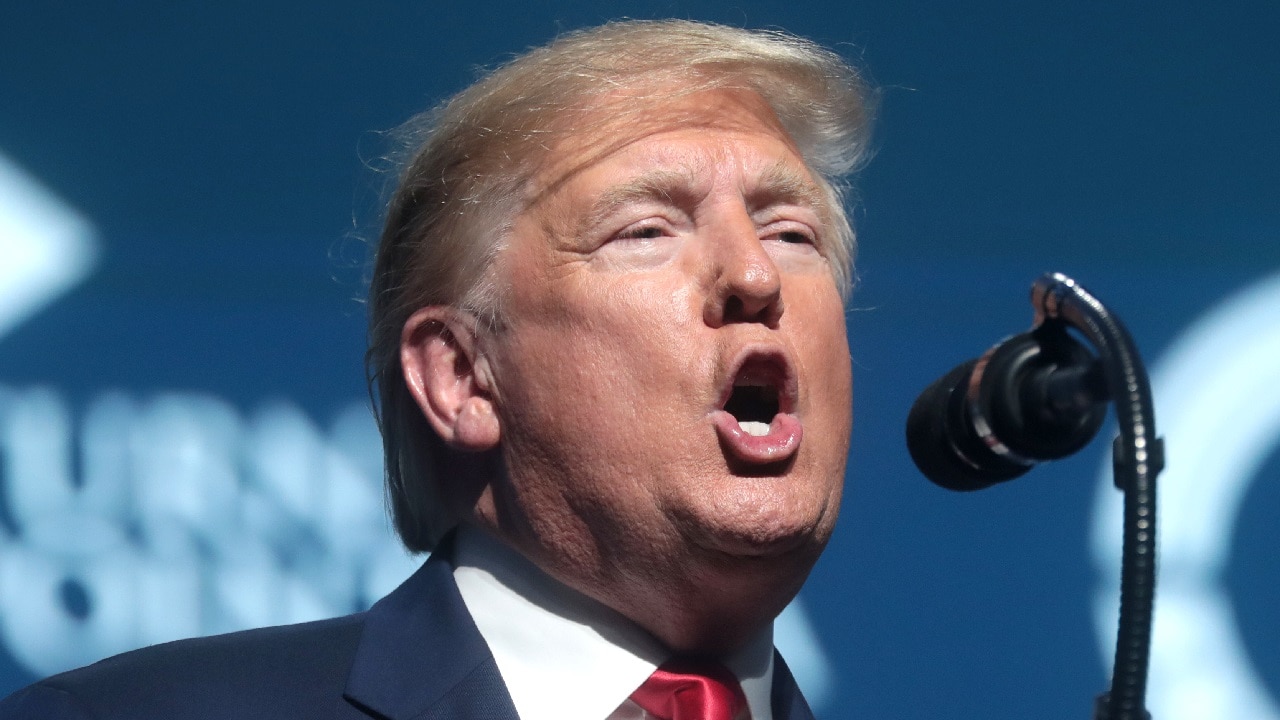The long-awaited report by Special Counsel John Durham (for a counterpoint to this piece, read this) found a web of conspiracy against former President Donald Trump. It also found scant intelligence or information to use to start a criminal investigation into the former president and his campaign in the first place.
The 306-page report documents the lack of sourcing for the claims that Trump colluded with the Russians to steal the 2016 election from Hillary Clinton. It noted the entire investigation stemmed from unvetted rumor and innuendo.
“In addition, FBI records prepared by [Deputy Assistant Director of the FBI’s Counterintelligence Division Peter] Strzok in February and March 2017 show that at the time of the opening of Crossfire Hurricane, the FBI had no information in its holdings indicating that at any time during the campaign anyone in the Trump campaign had been in contact with any Russian intelligence officials,” the Durham Report said.
Hillary Clinton Allegedly Behind the Scheme to Frame Trump for Russia Collusion
Declassified notes showed that President Barack Obama was briefed by former CIA Director John Brennan in July 2016 about a plan hatched with the “alleged approval by Hillary Clinton on July 26, 2016 of a proposal from one of her foreign policy advisors to vilify Donald Trump by stirring up a scandal claiming interference by Russian security services.” The Durham Report notes that a trusted source found that Clinton hoped to use the Russia collusion scheme to divert attention from her illicit email server.
The FBI opened the investigation in response to a report written by Fusion GPS, a research firm retained by Perkins Coie, an international law firm based in the U.S., starting in spring of 2016. The law firm hired Fusion GPS to do opposition research on Trump and his associates.
Durham’s report noted that the allegations that the genesis for the investigation began with Nellie Ohr, wife of Justice Department official then Associated Deputy Attorney General Bruce Ohr at the start of the operation. She fingered an alleged connection between Belarusian-American businessman Sergei Milian and Donald Trump. Millian was promoted in the press as the key intermediary between Trump and Russia.
Glenn Simpson of Fusion GPS met Christopher Steele, a former British intelligence officer who did work for the FBI, in the U.K. to investigate alleged Trump ties to Russia.
Steele provided Fusion GPS with a series of reports that became known as the Steele Dossier, which then was provided to the FBI and served as the basis for the FISA warrant application against Trump campaign foreign policy advisor Carter Page. The Steele Dossier alleged that Page travelled to Moscow to meet with Kremlin officials and discussed the potential lifting of sanctions on Russia if Trump were to win.
Page was an American energy expert brought into the campaign to advise on Russian energy policy.
FISA Warrant Based On Possible ‘Russian Disinformation’ From Source
The report notes that the primary sub source for the Steele Dossier that was used to obtain a FISA warrant was a certain Igor Danchenko. FBI counterintelligence records showed that Danchenko had bee in contact with known Russian intelligence officers and that concerns had been raised about his potential involvement with Russian intelligence.
The FBI never considered the fact the alleged intelligence provided by Danchenko to FBI informant and former British spy Christopher Steele may have been “in whole or in part Russian disinformation.” Danchenko fabricated the allegations found in the Steele Report that fueled reporting that Trump colluded with Russian officials.
At no time did the FBI disclose Danchenko’s unresolved connections with Russian intelligence to the Justice Department attorneys responsible for drafting the FISA warrant application to investigate Carter Page.
The Durham Report noted that Strzok and Deputy FBI Director Andrew McCabe had personal animus toward Trump that may have clouded their judgements in approving the investigation.
“[Crossfire Hurricane] was opened as a full investigation without ever having spoken to the persons who provided the information. Further, the FBI did so without (i) any significant review of its own intelligence databases, (ii) collection and examination of any relevant intelligence from other U.S. intelligence entities, (iii) interviews of witnesses essential to understand the raw information it had received or (iv) using any of the standard analytical tools typically employed by the FBI in evaluating raw intelligence,” the report said.
MORE: The Collapse of Kamala Harris
MORE: Kamala Harris Is Falling Apart
John Rossomando was a senior analyst for Defense Policy and served as Senior Analyst for Counterterrorism at The Investigative Project on Terrorism for eight years. His work has been featured innumerous publications such as The American Thinker, The National Interest, National Review Online, Daily Wire, Red Alert Politics, CNSNews.com, The Daily Caller, Human Events, Newsmax, The American Spectator, TownHall.com, and Crisis Magazine. He also served as senior managing editor of The Bulletin, a 100,000-circulation daily newspaper in Philadelphia, and received the Pennsylvania Associated Press Managing Editors first-place award for his reporting.

